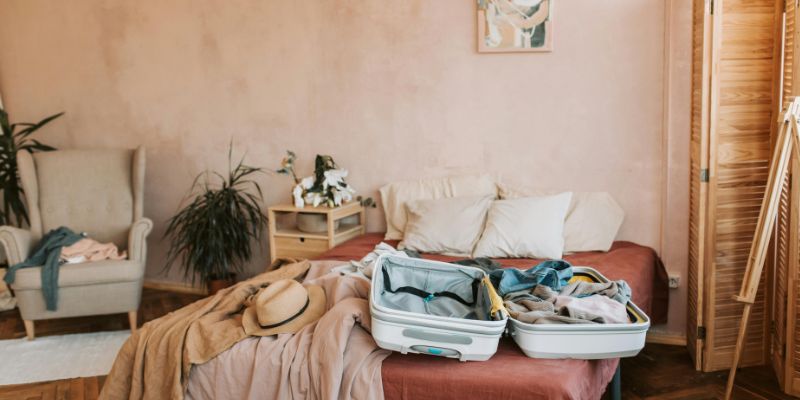Paris is one of those cities that doesn’t need much introduction. You think of it, and images of the Eiffel Tower, the Seine, and small cafés come to mind. But one part of Paris that many visitors overlook is the opera. Seeing a performance in Paris, or even just visiting the opera house, is an experience that mixes history, culture, and beauty in one place.
But do you know what is the best time to visit Paris, especially if you want to watch the opera?
This guide keeps it simple. No hype. No tourist clichés. Just what you need to know if you want to enjoy Paris and the opera without stress.
Why Does The Opera Matters In Paris?
Paris has two main opera houses: Palais Garnier and Opéra Bastille. Both are worth knowing about.
- Palais Garnier is the classic one. Built in the 19th century, it’s famous for its marble staircase, chandeliers, and Marc Chagall’s painted ceiling. It looks like the set of a movie. Even if you don’t see a performance, just touring the building is unforgettable.
- Opéra Bastille is modern. Opened in 1989, it has a huge stage, better acoustics, and seats thousands of people. The design is plain compared to Garnier, but the performances are world-class.
Together, they form the Paris Opera. Shows are split between them depending on the season. Now, depending on when you are going, it is best to stay at hotels near Opera Paris France.
Why go? Because Paris and opera belong together. The city has always been a place where art and daily life mix. Seeing an opera in Paris makes you part of that tradition, as well as knowing the best time to visit Paris for the same.
Before You Go:
Knowing what is the best time to visit Paris will help you plan. Also, planning really helps. Tickets sell fast, especially for popular shows.
- Check the schedule early. The Paris Opera publishes its calendar months in advance.
- Buy from the official site. Don’t waste time or money with resellers.
- Pick the right venue. Garnier for the historic atmosphere. Bastille for modern productions.
If you can’t get a ticket, don’t worry. You can still tour Palais Garnier during the day. The tour alone is worth it.
A Simple One-Day Plan:
Here’s a plan that works if you only have a day in Paris and want to include the opera.
1. Morning:
Walk along the Seine. Stop at a bakery. Have a croissant and coffee. Visit a museum you actually care about—maybe the Louvre if you want the classics, or Musée d’Orsay if you prefer Impressionist art.
2. Afternoon:
If you have tickets for an evening show, rest. Or take the tour of Palais Garnier. It’s about an hour, and you’ll see the grand staircase, the foyers, and the famous auditorium.
3. Evening:
Eat dinner near your opera house. Don’t go too far—you don’t want to rush. Arrive 30–40 minutes early. That way, you can find your seat calmly and enjoy the space before the performance starts.
What To Expect At The Opera?
Some people worry opera will feel intimidating. It doesn’t have to. Here’s what to know:
- Dress code. You don’t need a tuxedo or evening gown. Smart-casual is enough. A jacket or dress looks fine. Locals dress nicely but not overly formal.
- Surtitles. Most performances have translations projected above the stage. Still, read the plot before you go. It helps you follow along without checking the program every minute.
- Length. Operas can be long—three to four hours sometimes. If you’re new, pick something shorter or with one intermission.
- Phones. Turn them off. Not on silent. Off. Ushers are strict, and you’ll annoy everyone if it rings.
How To Choose Seats?
Not all seats are equal.
- Cheap seats: At Garnier, the very top balconies are inexpensive but often have blocked views. You may hear well but barely see the stage.
- Best value: Middle-level seats on the side. You’ll get a good view without paying the highest prices.
- Close seats: If you want to see faces and details, sit closer. But know the sound may balance better from a bit farther back.
Always check the seating map before you buy. And keep a screenshot of your ticket, just in case your phone loses connection.
Getting Around:
- Metro: Fast, reliable, and cheap. Both Garnier and Bastille are near central Metro stops.
- Taxis or rideshare: Fine late at night when trains are less frequent.
- Walking: Paris is compact. If your hotel is near the center, you may be able to walk back.
If You’re New To Opera…
Opera can feel overwhelming if it’s your first time. A few tips:
- Start light. Choose a famous opera under three hours. Verdi’s La Traviata or Bizet’s Carmen are popular and easy to follow.
- Read a summary. Know the characters and main plot. It makes the performance clearer and more engaging.
- Don’t stress the details. You don’t need to understand every word. Focus on the music, the voices, and the staging.
And remember: it’s fine if you don’t love every part. The experience itself—the hall, the live orchestra, the crowd—is worth it.
Two-Day Option:
If you have more time, spread things out.
Day 1:
Visit major sights. Eiffel Tower, Louvre, or simply stroll through neighborhoods like Le Marais or Saint-Germain. End with sunset along the Seine.
Day 2:
Tour Palais Garnier in the morning. Have coffee nearby. Then go to your opera in the evening, either at the Bastille or the Garnier.
This way, you enjoy the city without feeling rushed.
A Few Honest Tips:
- Food near the venues: Restaurants right next to the opera houses can be overpriced. Walk a block or two away for better quality.
- Timing: Always arrive early. Latecomers aren’t let in until intermission.
- Comfort: The halls can get warm. Bring a light scarf or jacket you can remove easily.
- Budget: Opera tickets range from affordable balcony spots to luxury boxes. Decide what matters more to you: price, view, or comfort.
Packing Essentials:

For a simple Paris trip that includes the opera, bring:
- A small umbrella (weather shifts quickly)
- Comfortable shoes for walking
- A light jacket or scarf
- A portable charger for your phone
That’s all you really need.
Why It’s Worth It?
Some people say, “Why go to the opera when you can see the Eiffel Tower?” The answer is simple: the Eiffel Tower is about the view. The opera is about the feeling.
You sit in a hall built for beauty. The music surrounds you. For a few hours, you forget time. That’s different from sightseeing. It’s an experience.
And when you leave, you walk into the Paris night with the music still in your head. That’s something you’ll remember long after the trip.
And It’s A Wrap!
Now you know what is the best time to visit Paris and watch the Opera. But it’s best not to over-plan. Pick a few things to see. Leave space for slow walks, coffee breaks, or sitting by the river. The opera can be your highlight, but it shouldn’t feel like an obligation.
Paris rewards people who take their time. The opera rewards people who listen. Put the two together, and you get a trip that feels complete.
If something doesn’t go perfectly, don’t worry. You’re still in Paris.
Read Also:




























